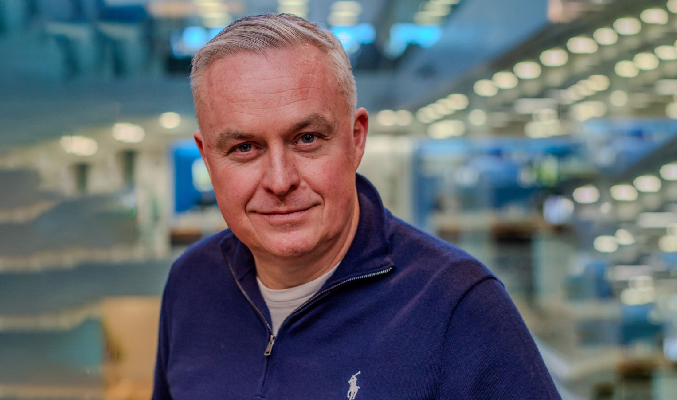‘Probably the best lender you’ve never heard of’
By David Craik

What does a combined 50 years in the world of banking give you?
For Rachel and Stewart Barnes it provided them with enough experience and skills to build a thriving lending firm but also have a thirst for the interesting, quirky and exciting.
The husband-and-wife team set up Portman Finance in 2005 after Stewart’s 30 years in property banking and Rachel’s 20 years in business banking.
The group, which is mainly focussed on development lending, has grown successfully since then through the financial crisis of 2008 and the pandemic, but as it says on its website is still ‘Probably the best lender you’ve never heard of’.
The Barnes hope joining the Bridging Loan Directory will get their name and their services more widely known amongst clients and brokers.
Portman Lowdown
Portman Finance, led by the Barnes and supported by property guru and Chartered accountant Martin Hay, offers bespoke, short-term secured, non-regulated finance in three key areas.
These are Developments where they provide funding to help with both the purchase of the site and then the cost of development, with loans between £100,000 and £2million.
Development Top-Up to help fund unforeseen shortfalls or cost over-runs on development with loans between £50,000 to £500,000 and Bridging offering short-term funding to help with customers looking for loans between £50,000 and £2million pending the sale of a property or arranging long-term finance.
It covers residential, commercial and land with planning.
Absent from its offering are fancily named or crafted products with the Barnes relying instead on that banking acumen to win business.
“We set up the business with our banking hats on. We wanted to utilise our banking skills and background for the benefit of our borrowers,” says Stewart.
“By creating boxes to put situations in and say we only lend a certain GDV in this particular area or that particular sector we felt we would be limiting ourselves.
We don’t want to be a factory doing the same vanilla deals. We want to provide financial solutions to bespoke situations.
We want to use our experience to think out of the box.”
Weird and Wonderful
He adds: “Deals have fundamental similarities, but they are all a bit different. Everybody has a story, and it is the nuances that we love.
It keeps life interesting which is important when you have been in banking for 50 years! As long as we can sleep at night, we will have a go at the weird, wonderful and quirky.”
Examples include an experienced property investor who bought a property which had been split into two flats at auction.
However, it did not have planning for the two flats and following a site visit Portman decided that the best route would be convert it back to a house.
Portman funded the purchase and subsequent conversion works.
Another example was a first-time development which encompassed a site with a house and a large garden with planning for 4 houses.
The customer had never developed before but given that the site was in a strong residential area and with a good team behind the borrower Portman provided funding for the purchase and development.
Development Focus
The focus on development emerged out of the 2008 recession. “Because of the way we are funded and our experience we are able to adapt to where the market pushes us,” says Rachel.
Indeed, in the early years Portman had a strong focus on business finance providing firms with flexible overdrafts when the 2008 financial crisis hit.
“We funded a few small firms, all secured, for their cashflow,” Rachel recalls. “But then the financial crisis provided us with another bigger opportunity – development.”
The couple say they were approached by a customer who had a partially completed development In Leicestershire which was being funded by a high street bank.
Unfortunately, in the recession, the bank pulled out and the customer turned to Portman for help.
“We had never done this sort of thing before, but we gave them £100,000 to finish the job. They did that and sold it on,” Stewart says.
“We realised that there was a bit of a niche in the market for partially completed developments. It is amazing how often people start and then run out of cash.
A lot of other lenders do this now, but we believe we were the first.”
The human element of a deal is just as important with Stewart regularly mentioning ‘great deals’ and ‘lovely people’ when discussing Portman’s business.
“We meet every single borrower at the site. The relationships run right the way through from Day One to redemption,” Stewart says.
“We can do that because we are a small team. Again, it’s like banking in the sense that you are creating relationships with clients and brokers. It is not purely transactional.”
Because of this determination to meet borrowers on-site it means that the Hertfordshire firm has some geographical restrictions.
“We don’t want to be too Southeast focused, so we broadly go up to Birmingham and a bit further and to the Welsh borders and a bit of Devon,” Stewart states.
“We like to keep it within a two-to-three-hour drive from north London so if anything ever went wrong we could get there. It is a very scientific approach!”
Surging Demand
Even during the pandemic the commitment to site visits remained. “All of the meetings were outside, so we kept going,” says Stewart.
“For two weeks our phones went quiet but then for the next three months we had never been busier. We didn’t miss a beat.
We are confident that as the pandemic ends the demand will continue given the strong property market. At the moment there is so much going on.”
That’s despite development challenges such as the continued supply squeeze on building materials and soaring prices as inflation takes hold.
“There is a fear factor amongst developers around the uncontrollable cost of materials. People have to factor it into their development budgets, and it is a concern for the whole industry,” says Stewart.
“Developers are being told that they won’t get a price until the materials are shipped. Inflation is leading to the doubling of prices but hopefully it will right itself.”
Another pressing issue is the increased time taken to draw down loans. “Pre-pandemic you could draw down a loan within 3 months maximum but that has now increased.
That’s down to delays from solicitors on the borrower’s side and land registry delays,” says Rachel.
Stewart however remains optimistic. “It’s steady-eddie for us this year.
The demand is there with first-time developers an increasing focus for us,” he explains. “We also want to put our name out there a bit more.
We may be a bit… ish and fuzzy and fudged but we offer common sense, no-nonsense lending. We will continue to use our decades of nous and knowledge to find a solution to those quirkier and more colourful deals.”

David Craik is a freelance journalist writing news, feature articles, blogs and guides for national newspapers and magazines. His main areas of interest include finance, property and investments.










You must be logged in to post a comment.